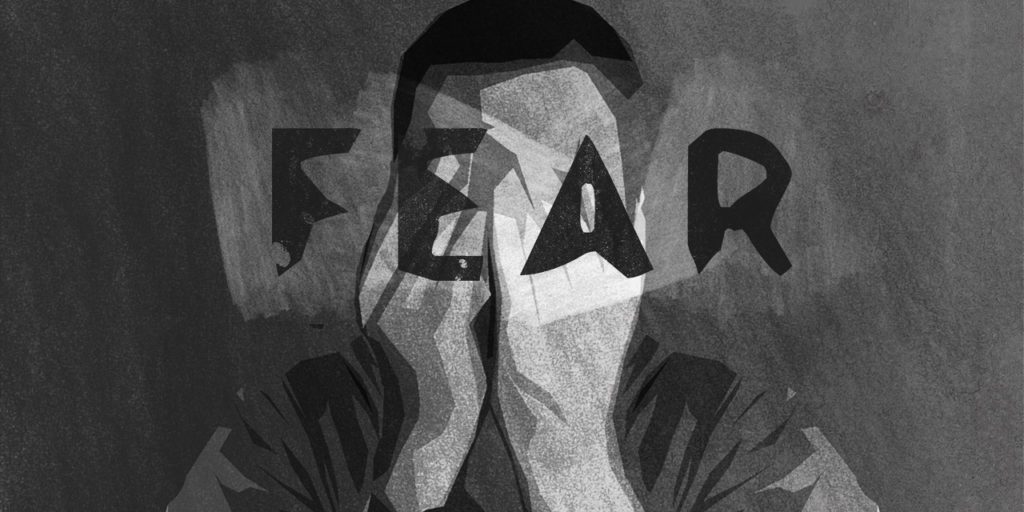Forex trade, like any other profession, is associated with losses, but the consequential loss creates a psychological gap in which the trader will be incapacitated by dealing with the trading table. Mark Douglas explains in his classic “Disciplinary Trader”: “Fear of loss actually causes loss.” The limits of losses, rather than taking into account the sufficient space for moving prices, are considered to be very limited. Trades usually decrease after entering, which frightens these coward traders and forcing them to quit the transaction at a low loss in order to prevent further losses. Small successful unsuccessful transactions will eventually empty your trading account.
You need to focus on big disadvantages instead of small ones. If you are mentally unable to deal with small losses, you will lose huge potential opportunities because any deal may change against you. You need to know how much damage you can make in each transaction. Another catastrophic action is the hope of returning to an unsuccessful deal, which often leads to greater losses.
The fear of loss of time prevents traders from executing trades that the trader largely ignores the results of the work rather than focusing on Forex trading. This creates doubts about the ability of the program to be traded and prevents the necessary action, resulting in an unpleasant cycle of uncertainty in the individual.
Dealing with demo accounts and doing small transactions in micro accounts helps you to deal with fears of loss and focus on trading rather than profit or loss. Micro accounts are more recommended because if you trade with low amounts of real money, you will be familiar with market excitements at a lower level and you can gradually adapt yourself to it. The money you set aside for trading is in fact the amount it has the ability to lose and can be considered as a cost of education (such as university education). Demo deals alone cannot excite your emotions because they are nothing at risk.
Only when you can enter live deals to trust you to run your business without any hesitation can you enter the market with confidence and without delay.
The fear of losing good deals can be dangerous because it often leads the trader to enter the market regardless of prices. If the excitement and inspiration without consideration is sufficient, it will overwhelm the business plan and may lead to negative risks. If you want to be a successful trader, you should eliminate the fear of losing business opportunities; otherwise, it will lead to too much business.
Instead of concentrating on the frequency of transactions, do not think about the quality of the trading you are engaging in. Do not trade much, the market is always available and you can participate every day; therefore, do not worry about losing one or two trades. Being cautious is losing a better deal than doing crazy deals, especially when doing these deals is not worth it.
The focus is on being true rather than earning money from the trader’s name. In fact, it is a measure that unifies the net worth of the trader with his own value, which makes it possible to receive his or her income quickly, or to withdraw from the market at a time when he is.
Business leads to many issues about the relationship between the individual and the money. An individual’s internal conflict by earning money or requiring perfection makes it difficult for her to leave the deal at a loss, as it impairs the person’s depiction of perfection. Or you may feel guilty because you have always had a baby, and unconsciously try to find a way to bring it back to the market. To avoid personal injury, pronoun should stop supporting these versions.
The trading game is probabilities, in which there is always a possibility of harm. Perfectionism in trade leads to failure. If you cannot tolerate small losses due to perfectionism, you will suffer a greater disadvantage.
Mistakes have different effects on people. Maybe you’ve got a little humiliated due to bad grades with parental dissatisfaction. We are very sensitive to the feedback we receive from others. Childhood feedback can have long-term and unpredictable consequences. Many of us will never be completely emancipated from the emotional consequences of punishment that we have incurred due to our mistakes. Neural pathways are institutionalized in the brain, which links feelings with learning experiences. If these feelings are negative, they will interfere with our healthy and constructive learning.
Your trading plan should include emotions that you may experience, especially emotions related to fear. As a trader, you need to be distracted from fear and self-confidence, to learn from your mistakes. You need to believe in your ability to earn more than your loss. This way, you can easily continue to trade even after a period of unsuccessful positions.
Once Forex trading is successful, you can overcome your major fears on the market, believe in your trading method, and most of all, you have more confidence in yourself. If different dimensions of fear are understood, then the trader will be able to turn destructive fear into his most important asset when trading in the market.

